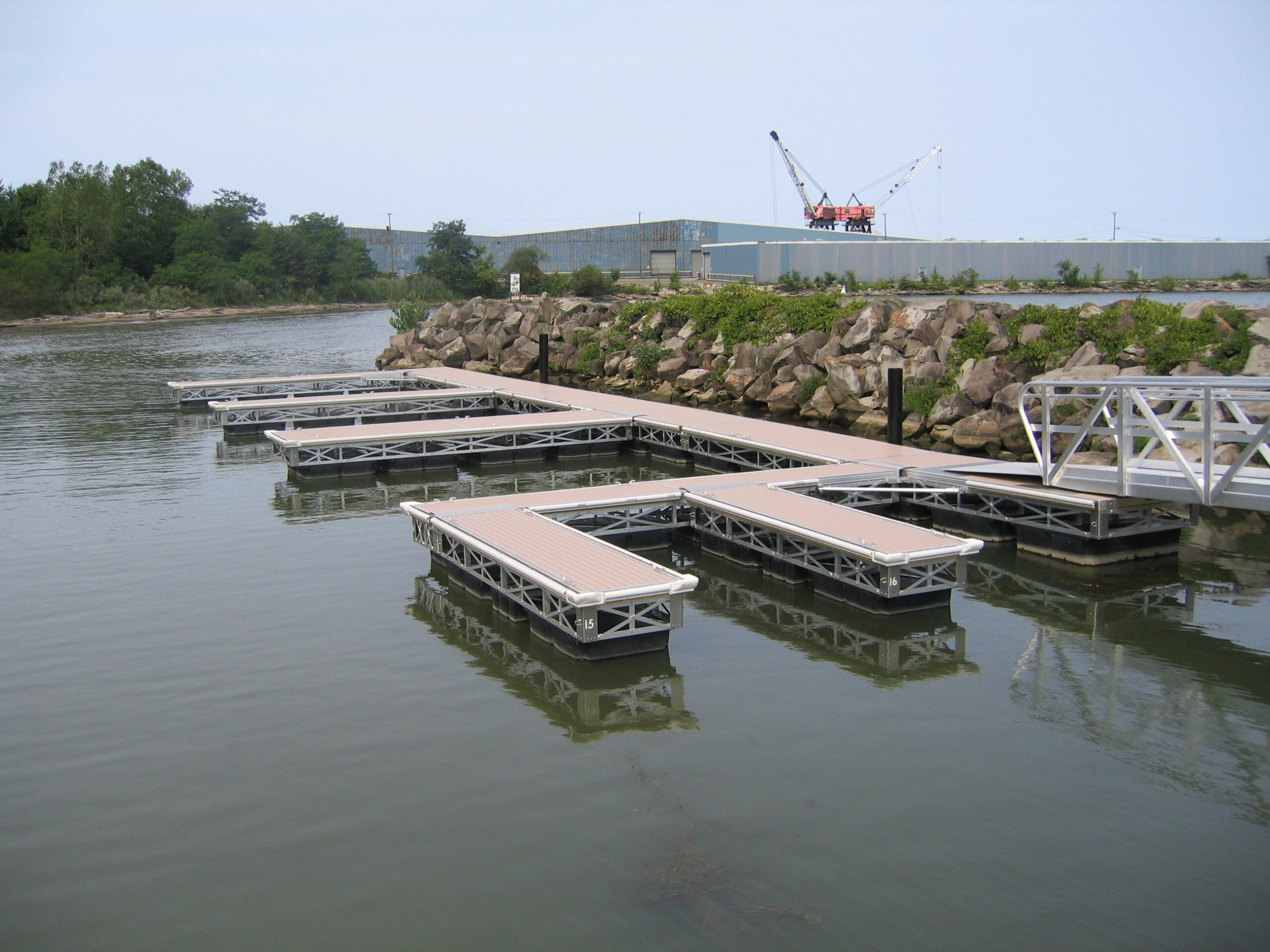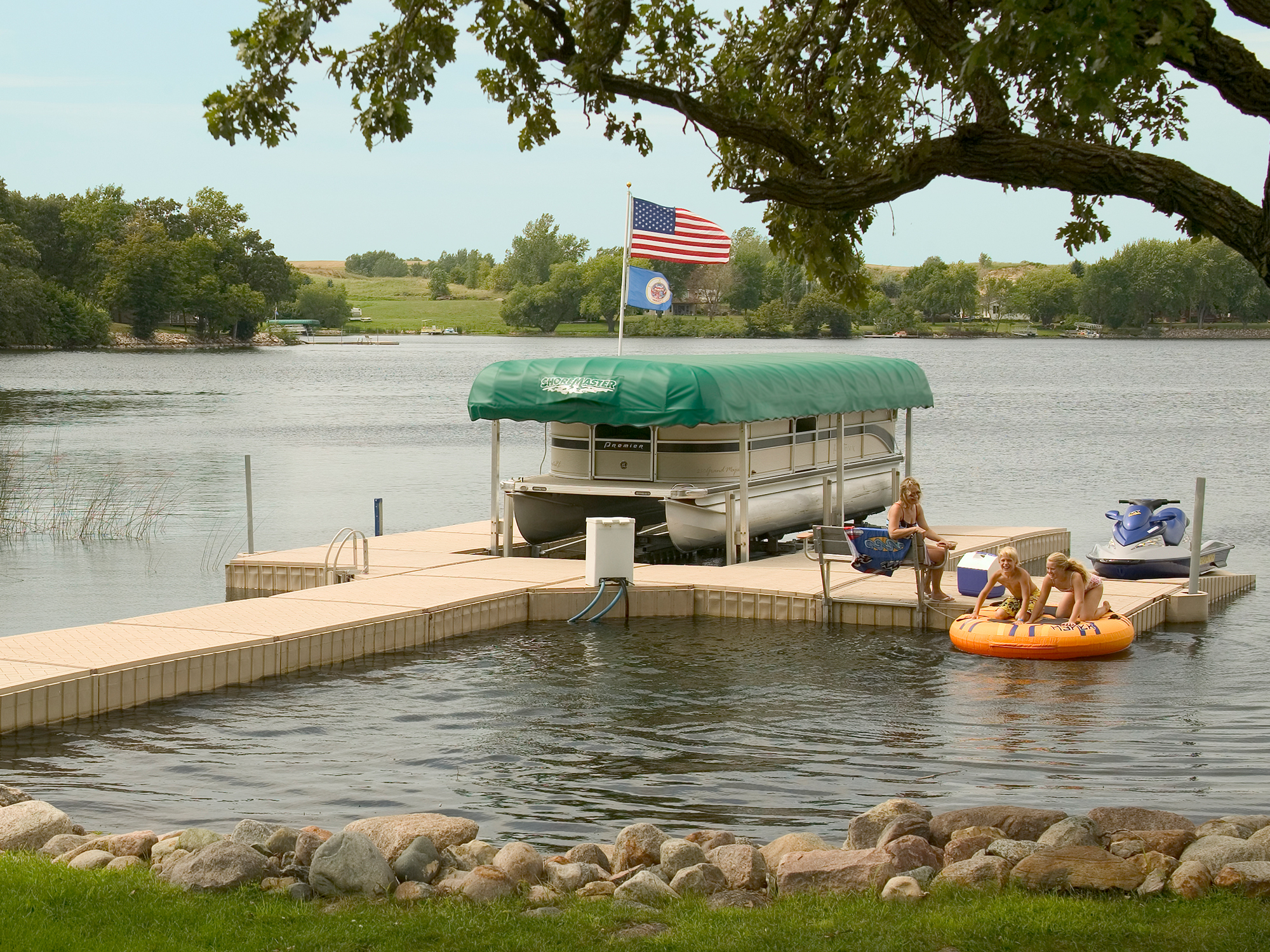Floating Docks: The Ideal Option for Versatile Water Gain Access To
Floating docks present a compelling option for a selection of water access requires, offering flexibility that goes beyond typical mooring alternatives. Their ability to adapt to rising and falling water degrees while making certain stability and safety makes them especially helpful for both business and recreational applications. The modular nature of floating docks helps with personalization, catering to particular demands. The subtleties of setup and maintenance, alongside the array of applications, necessitate a closer exam to completely appreciate their potential advantages and effects for waterway access strategies.
Advantages of Floating Docks
Floating docks deal many advantages that boost water gain access to for various applications. Their capacity to fluctuate with transforming water levels makes them particularly helpful in environments with fluctuating trends or seasonal variations. This versatility guarantees that vessels can conveniently anchor without problem for the water's depth, providing a trusted platform for entertainment, industrial, and commercial uses.
Additionally, floating docks are often built from sturdy materials that withstand rust, making them ideal for long-term use in aquatic settings. Their installation is generally much less intrusive than typical fixed docks, lowering the ecological impact and helping with quicker implementation (floating docks). This flexibility enables much easier moving or reconfiguration according to customer demands or ecological changes
Security is one more crucial advantage; floating docks can offer stable access for individuals boarding or disembarking from watercrafts and lower the threat of mishaps related to unsteady surfaces. They can be created to fit a variety of devices, such as fenders and cleats, enhancing functionality. On the whole, floating docks represent a reliable service for boosting water access throughout varied fields while advertising security and environmental sustainability.

Kinds Of Floating Docks
Numerous types of floating docks deal with various needs and atmospheres, each developed with particular attributes to optimize performance. One of the most common types consist of modular docks, which consist of interlacing areas that enable simple modification and expansion. These docks are suitable for entertainment use, as they can be tailored to fit different watercraft dimensions and water conditions.
One more prominent alternative is the fixed floating dock, which remains anchored in location yet drifts with changing water levels. floating dock services. This kind is specifically suited for areas with minimal tidal changes, supplying steady accessibility for angling or swimming. In addition, there are drive-on docks, which include a sloped layout that permits watercrafts to conveniently drive on and off, making them suitable for individual watercraft and smaller vessels
For industrial applications, durable floating docks are offered, built from strengthened materials to endure considerable tons and severe marine atmospheres. Finally, environment-friendly floating docks utilize sustainable materials and layouts to decrease ecological influence, usually incorporating attributes like vegetation to support neighborhood wildlife. Recognizing the various kinds of floating docks guarantees that users can pick one of the most suitable solution for their details demands.
Setup Refine Introduction
A successful installment of floating docks needs mindful preparation and attention to information to guarantee optimum performance and safety and security. The preliminary step includes evaluating the website conditions, consisting of water depth, existing, and potential barriers. This assessment educates the selection of the proper dock materials and style tailored to the certain setting.
Next, getting required authorizations is vital, as several jurisdictions have laws concerning building and construction on water bodies. Once authorizations are secured, the setup can continue. Begin by preparing the structure, which might involve anchoring systems or pilings tailored to the dock kind and neighborhood conditions.
Complying with the structure arrangement, assemble the dock sections according to maker requirements. Ensure that all elements are safely attached and straightened to withstand environmental anxieties. Placement the dock in the designated area, ensuring it is level and steady.

Upkeep Tips and Ideal Practices
After the setup process is complete, ongoing upkeep plays a vital function in ensuring the longevity and capability of floating docks. Routine examinations ought to be performed to recognize any type of indications of wear, damage, or deterioration - floating dock services. Inspect for any loosened installations, cracks, or splitting up in the dock sections, as these can endanger structural honesty
Cleaning up the dock is important to get why not check here rid of debris, algae, and various other build-up that can influence its appearance and safety and security. Use a mild pressure clean periodically to keep cleanliness without creating damage to the surface area. Additionally, applying a safety sealant every couple of years can aid improve long life and resist ecological wear.
Take notice of the mooring lines and anchors, guaranteeing they are protected and cost-free from corrosion. Replace any kind of abject elements without delay to avoid dangers. Seasonal adjustments may likewise be essential; during extreme climate problems, repositioning or strengthening the dock can prevent damage.
Applications for Floating Docks
Floating docks offer a multitude of applications, dealing with both business and recreational needs. In leisure setups, they supply smooth accessibility to rivers for activities such as boating, fishing, and swimming. Their adjustable nature enables setup in varying water levels, making sure secure and risk-free gain access to no matter tidal variations.
Readily, floating docks are vital for marinas and beachfront organizations. They promote the docking of vessels, making it possible for reliable dumping and filling of items. Their modular layout permits very easy growth or reconfiguration to fit altering company demands, making them perfect for boat rentals, tour procedures, or angling charters.
Furthermore, floating docks are made use of in environmental applications such as marine research and environment restoration. They can act as platforms for clinical researches, keeping track of water quality, or carrying out wildlife surveys without troubling delicate environments.
In industrial contexts, floating docks are utilized in construction tasks, supplying access to hard-to-reach areas for tools and workers. Their flexibility, resilience, and marginal influence on the atmosphere make them an optimal selection for a broad range of applications, boosting both performance and accessibility in different water-based environments.
Verdict
In final thought, floating docks stand for an ideal solution for varied look at here water access requires, owing to their adaptability, longevity, and modular style. These frameworks help with secure mooring for different applications while decreasing environmental influence during installment. The reduced upkeep demands better improve their usefulness. Floating docks serve as a useful property for recreational, industrial, and ecological tasks, ensuring reputable accessibility to rivers and promoting sustainable methods in water settings.
Floating docks present a compelling solution for a variety of water access needs, offering versatility that transcends traditional mooring options.Floating docks offer various advantages Resources that enhance water access for various applications. Generally, floating docks represent an efficient remedy for boosting water gain access to throughout varied industries while advertising security and environmental sustainability.
Another preferred alternative is the stationary floating dock, which remains anchored in place yet drifts with altering water levels.In conclusion, floating docks represent an optimum option for diverse water access requires, owing to their versatility, sturdiness, and modular design.